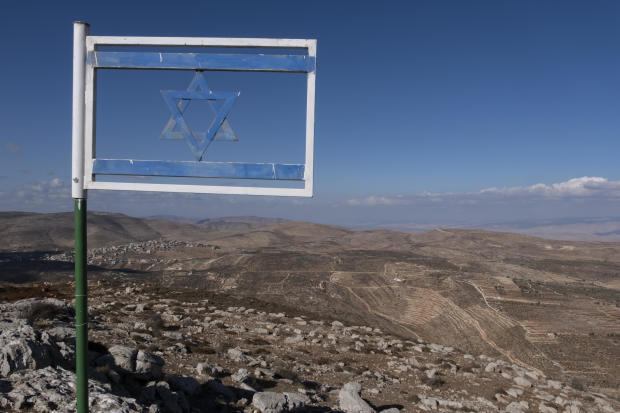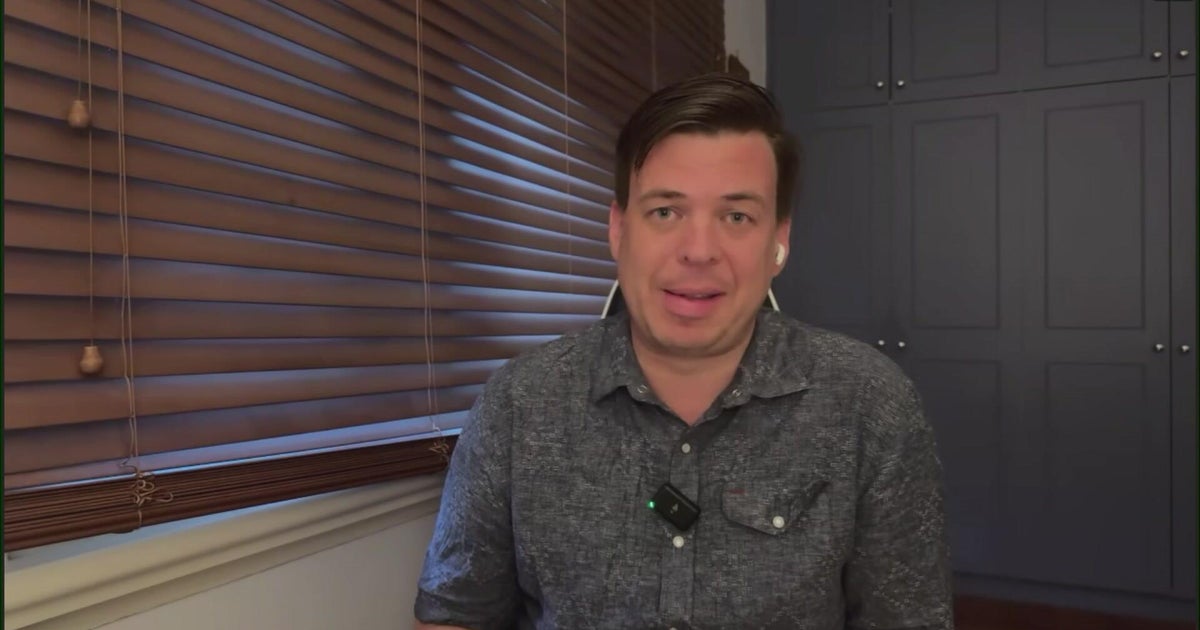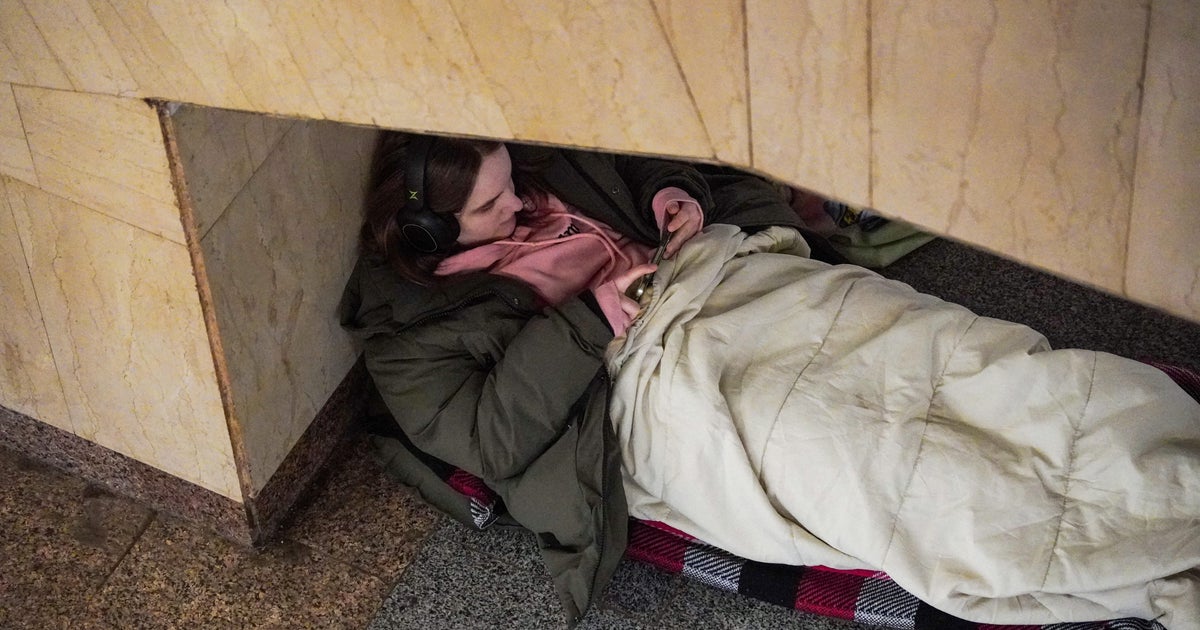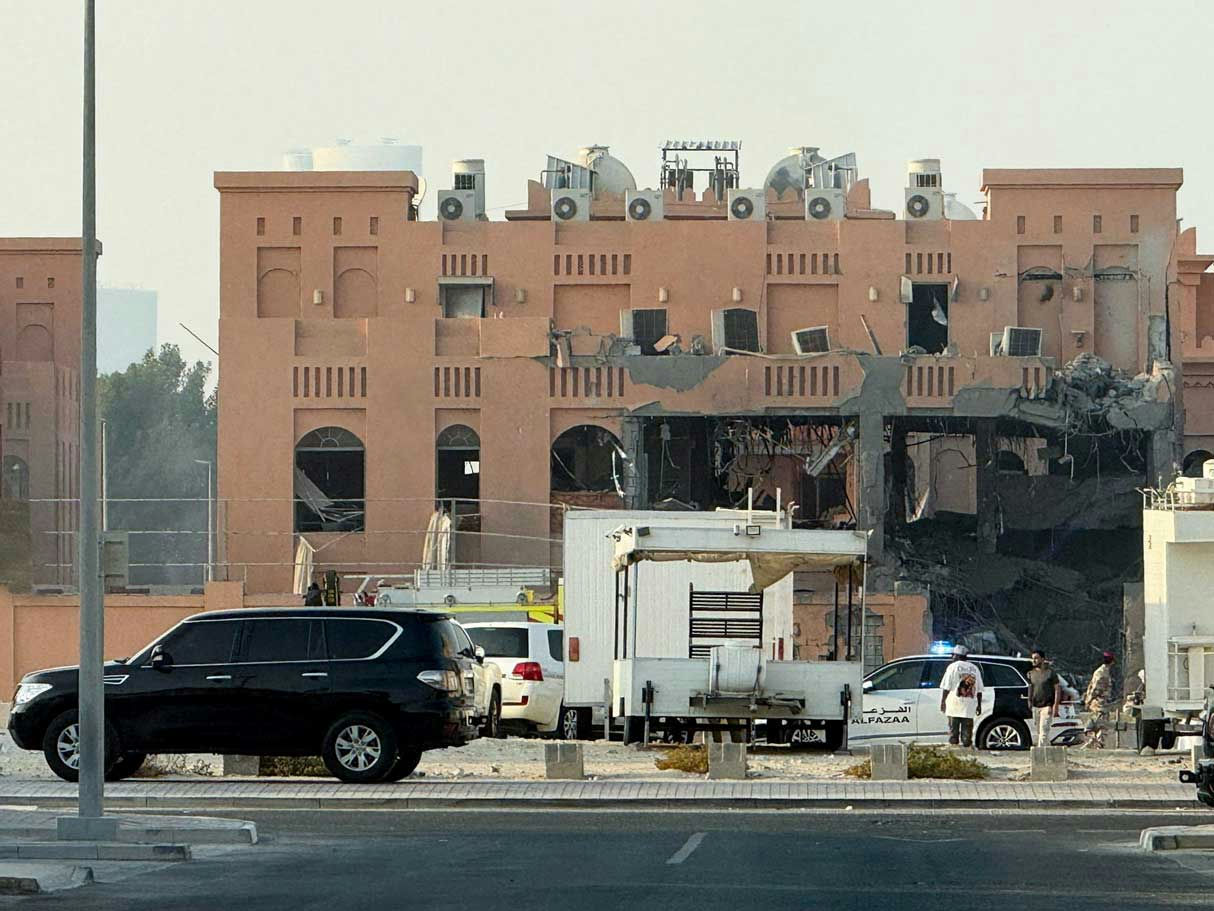The war with Hamas pushed many Israeli dual citizens to leave the country. Here are stories of some who stayed.
In the decade since Cindy Wiesel moved to Israel from Bergenfield, New Jersey, her family has experienced close brushes with violence — and although she says these are likely the "most universally turbulent" times they've lived through, the family has decided to stay put.
"Israel is my home now. Why would I leave my home?" said Wiesel, 52, a summer camp director and dual U.S.-Israeli citizen who now lives in Efrat, a settlement deep in the Israeli-occupied West Bank, near the Palestinian city of Bethlehem. She said her 20-year-old son and her son-in-law are currently serving in Israel's military.
In the aftermath of Hamas' deadly Oct. 7 terror attacks, which Israel says killed about 1,400 people, the country declared war, bombarding the Hamas-controlled Gaza Strip and preparing for a ground invasion.
Many visitors and dual citizens scrambled to leave Israel. But others, including Wiesel, dug in their heels and are committed to staying in the country.
The U.S. and several other nations have helped their citizens to evacuate with charter flights and even cruise ships carrying thousands to safety. The U.S. State Department has warned Americans in the region that "terrorists and violent extremists may attack with little or no warning."
Few people in Gaza have had the option to leave — even U.S. citizens who were visiting at the time of the attacks were trapped, with the first group finally allowed to exit on Nov. 1. Health officials in Hamas-ruled Gaza say more than 8,500 people have been killed by Israel's airstrikes, and the U.S. government said as many as 600 U.S. nationals were among the roughly 2.3 million people stuck under the Israeli blockade of Gaza.
At least 20,000 Americans in Israel and Gaza contacted the U.S. State Department in the first week of the war, but officials have not said how many have actually left.
"We've been here before"
Many dual citizens living in Israel have already felt the impact of violence and conflict in the years since they moved to the country.
In April, family friends of the Wiesels, two British-Israeli sisters and their mother, were killed in a shooting in the West Bank. Despite the turmoil, Wiesel has stuck to her normal routine as much as possible, though she says traveling around Israel has become a nerve-wracking experience.
Recently, Wiesel planned to travel to Beit Shemesh to visit a family sitting shiva, a seven-day mourning process that's part of Jewish tradition. Wiesel said each time she planned to make the trip, rockets were falling. Still, she said she's felt safe, for the most part.
"We have tremendous faith in God that we'll be safe and that Israel is our place," Wiesel said.
Father of five Geoff Winston lives in Zichron Ya'akov, a town about a 25-minute drive from Haifa, in northern Israel. He moved to the country from New Jersey in 1992.
In 2006, his family had to take cover in shelters for weeks during rocket attacks from Hezbollah, an Iranian-backed militant group based in Lebanon, just across Israel's northern border. Winston still remembers his then-7-year-old son screaming in fear of the sirens.
His son is now 24 years old and is in military intelligence stationed on the northern border, said Winston. He has two more children in the military but said he would stay in Israel regardless, because it's his place.
"This is where I've been for the last 31 years and this is where I'm going to die," he said.
Aviva Goldberg, a 54-year-old mother of four, first came to Israel as a teen and lived in the country through the Gulf War and the first and second Intifadas — Palestinian uprisings in the late 1980s and early 2000s. There were never any thoughts of leaving, she said.
Goldberg came back to the U.S. after her marriage so her husband could finish his master's degree, and they stayed for 20 years, but then her family returned to Israel nine years ago.
While she's lived through many conflicts in Israel, Goldberg said this one is the worst. Still, she hasn't once considered leaving.
"If every single person who had a way to get out left, what would happen? Who would be left? We wouldn't have the country anymore," Goldberg said. "And guess what, I wouldn't blame any other country for saying, 'Look at them, they ran the second things get hard.'"
At the end of 2021, about 79% of the Jews living in Israel had been born there, according to the Ministry of Foreign Affairs. More than 3.3 million immigrants have moved to Israel since the state's founding in 1948, with about 1.5 million of them arriving since 1990.
"This is the only place we belong"
A significant share of Israel's population is made up of Holocaust survivors and their descendants — families who came to the country as refugees fleeing antisemitic persecution and often deadly violence. There were still 147,199 survivors living in Israel according to the latest study published in April by the government's Holocaust Survivors' Rights Authority.
Lilly Cantor, the 74-year-old daughter of Holocaust survivors, grew up in the U.S. hearing about her mother's wish to go to Israel. When she and her husband moved to Israel 11 years ago, Cantor said she felt like she was fulfilling her mother's dream.
One of her children and two of her grandchildren also live in Israel, but she said she'd want to be there and stay there through the war even without them.
"This is the only place we belong and the only place we're safe, and I feel very strongly about that," Cantor said.
Cantor's brother, who lives in Florida, asked her after the war with Hamas began if she would come back to the U.S.
"My response was: 'This is home. I don't have another home,'" Cantor said.
Cantor's mother died four years ago, but she knows her mother was proud of her decision to move to Israel
"I know she would say 'hang in there,'" Cantor said.






